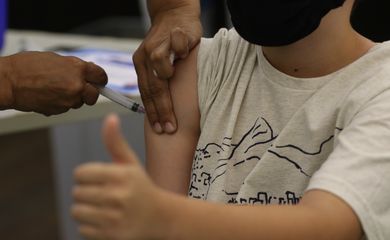Two cases of Deltacron confirmed in Brazil, says minister

Brazil’s Health Minister Marcelo Queiroga confirmed today (Mar. 15) Brazil has registered two cases infection with Deltacron, a variant of the novel coronavirus.

The new strain combines genetic features of Omicron and Delta and has been monitored by the World Health Organization (WHO) since the beginning of the month, when the first cases were identified in France.
“Our genome surveillance service has detected two cases in Brazil; one in Amapá, the other in Pará,” the minister told journalists upon arriving at the ministry building.
Queiroga pointed out that, in a pandemic context, in which a virus spreads more easily and rapidly, mutations become more likely. This, he went on, shows the role of vaccination.
“[The Deltacron] is considered important and requires monitoring,” Queiroga stated, adding that even following the “slowdown” in new cases of COVID-19 throughout the country, authorities must remain vigilant.
“We’re watching everything that happens in other countries. We monitor all cases, and this is the fruit of the strengthening of Brazil’s genome surveillance capacity, [the fruit of] strong investments that the federal government has made after the pandemic,” the minister added.
According to the Ministry of Health, between Sunday afternoon (13) and late yesterday afternoon (14), 11,287 new cases of COVID-19 were confirmed countrywide, as well as 171 deaths stemming from the disease.
On Saturdays, Sundays, and Mondays, figures tend to be lower than on other days of the week due to the difficulty facing state and municipal health agencies feeding the data. Even so, the overall results point to an improvement in the situation.
In this landscape, several states and municipalities have relaxed sanitary control measures, like mandatory mask use.
“[Brazil’s Supreme Court] has delegated to states and municipalities the prerogative to, in a complementary way to the federal government, make their own decisions about the use of masks. It is not about forcing people not to wear masks, but to make it no longer obligatory. This depends on the [local] epidemiological landscape. You have to do this in an intelligent way. For example, even though the number of cases is slowing down, we’re still advised to wear masks in hospitals. And so are immunocompromised people and those who have undergone transplantation,” he concluded.






